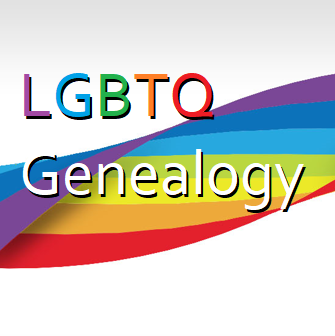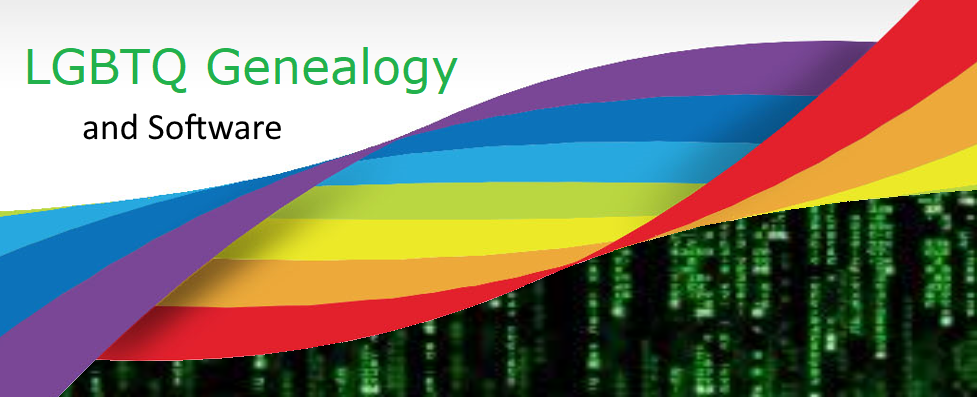Unlocking LGBTQ Heritage by Navigating the Archives
Perhaps an LGBTQ ancestor left behind a collection of love letters like Willa Cather or Charity Bryant. Or maybe there is an existing dairy confessing details of their love life. An ancestor may have been mentioned in a queer organization’s newsletter. With luck and exhaustive research, unique treasures might be found at an LGBTQ Archive. There are dozens of LGTBQ Archives domestically and internationally.
One of the earliest LGBTQ Archives traces back to Magnus Hirschfeld, a pioneering gay Jewish German sexologist and medical doctor. In 1897, Hirschfeld established the Scientific Humanitarian Committee in Germany, advocating for LGBT Human Rights. His Institute of Sexual Science, founded in 1919, promoted sex education, contraception, advice for gay and transgender individuals, and women’s rights. In 1933 Nazi stormtroopers raided the Institute. The books burning in newsreels of the day were those of Hirschfeld’s library. The Nazis utilized his client list to compile “pink lists,” identifying homosexuals for death in concentration camps. Hirschfeld’s legacy as a pioneer of LGBTQ rights and research is remembered through resources like the Making Gay History podcast.
In the contemporary landscape, one of the largest online LGBTQ Archives is the Gale – Archives of Sexuality and Gender. Spanning the sixteenth to twentieth centuries, this digital collection encompasses historical primary source publications related to sex, sexuality, and gender studies. The archives cover social, political, health, and legal issues impacting LGBTQ communities globally, with materials ranging from rare books to newsletters and periodicals from various nations.
Locally, I have researched in institutions like the GLBT Historical Society Museum & Archive in San Francisco. Housing approximately 800 collections of personal papers, photographs, audiovisual recordings, and organizational records, this archive provides insight into the lives of both everyday individuals and community leaders. Their extensive holdings include unpublished materials such as letters, diaries, and scrapbooks, along with an impressive array of ephemera, oral histories, and film and video recordings.
To discover LGBTQ Archives in your area, tools like ProQuest or NUCMC can be invaluable. If you know of other LGBTQ Archives, please post the name and URL in the comments.
| USA Archives | Locations |
| Tucson LGBTQ Museum | Tucson |
| Lambda Archives of San Diego | San Diego |
| GLBT Historical Society (Archive & Museum) | San Francisco |
| ONE Archives at the USC Libraries | So. Cal |
| June L. Mazer Lesbian Archives | West Hollywood |
| Stonewall National Museum & Archives | Fort Lauderdale |
| Gerber/Hart Library and Archives | Chicago |
| Leather Archives and Museum | Chicago |
| Chris Gonzalez Library and Archives | Indianapolis |
| Jean-Nickolaus Tretter Collection in Gay, Lesbian, Bisexual and Transgender Studies | Minneapolis |
| St. Louis Gay and Lesbian Archive | St. Louis |
| Lesbian Herstory Archives | NYC |
| Leslie-Lohman Museum of Gay and Lesbian Art | NYC |
| The LGBT Community Center National History Archive | NYC |
| The Dallas Way | Dallas |
| Gulf Coast Archive and Museum | Houston |
| Houston Arch Wiki | Houston |
| Transgender Foundation of America | Houston |
| International Archives | Locations |
| Australian Lesbian and Gay Archives | Parkville, Australia |
| Pride Library | London, Ontario, Canada |
| Quebec Gay Archives | Montreal, Quebec, Canada |
| Canadian Lesbian and Gay Archives | Toronto, Canada |
| British Columbia Gay and Lesbian Archives | Vancouver, British Columbia |
| The Transgender Archives at the University of Victoria | Victoria, British Columbia |
| Schwules Museum | Berlin, Germany |
| Centrum Schwule Geschichte | Koln, Germany |
| IHLIA LGBT Heritage | Amsterdam, Holland |
| Háttér Archive & Society | Budapest, Hungary |
| Irish Queer Archive | Dublin, Ireland |
| GALA | South Africa |
| Hall–Carpenter Archives | London, UK |



